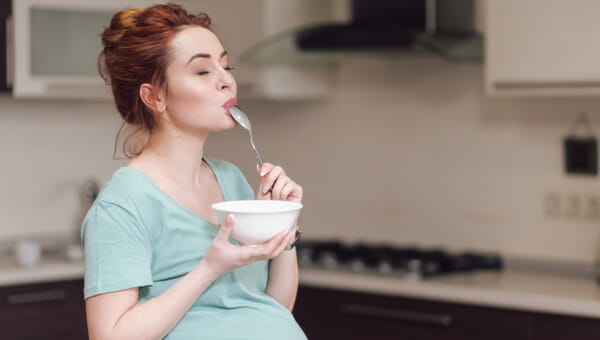Why do babies hiccup in the womb?
Fetal hiccups are usually part of the process of learning to breathe. Baby will take “practice” breaths, inhaling amniotic fluid into their lungs, which causes their little diaphragm to contract—leading to hiccups. Some reflexive movements can also cause hiccups, like when baby yawns or tries to suckle. Hiccups are also a sign that your baby is growing and developing on schedule. Not only does it show that the respiratory system is on track, it’s also a good indication that baby’s brain and spinal cord are doing their jobs.How can I “cure” baby’s hiccups?
Keep in mind that the hiccups probably aren’t bothering your baby. But, if you find them distracting or they keep you from falling asleep, there are a couple of things you can try:
- Shift your position (sit up if you’re lying down or stand up if you’re sitting) or take a short walk. This will change baby’s position and relax the diaphragm (or maybe even help baby fall asleep).
- Have a drink of water or a snack.
When should I worry about hiccups?
Hiccups are usually nothing to worry about. But, if you notice a sudden increase in hiccups, especially later in your pregnancy, you might give your doctor a call. In rare cases, it could point toward an issue with the umbilical cord. A good rule of thumb is that after about 32 weeks, if you notice more than four episodes of hiccups in a day, or if the hiccups seem much stronger than before, you should let your doctor know. Otherwise, try to enjoy the hiccups as just one more little reminder of the little one you can’t wait to meet!




